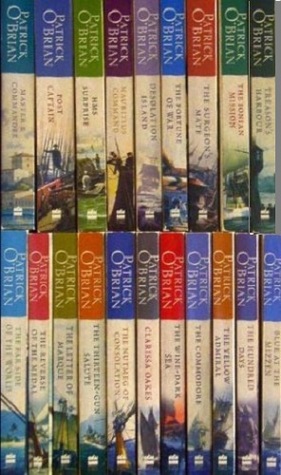“‘Perhaps you will join us one day,’ said Mrs. Beltane, in the rather perfunctory tone in which social invitations not meant to be accepted are sometimes issued, and to which the only suitable reply is a murmur.”
Barbara Pym, No Fond Return of Love
Terry Teachout on the arts in New York City
“‘Perhaps you will join us one day,’ said Mrs. Beltane, in the rather perfunctory tone in which social invitations not meant to be accepted are sometimes issued, and to which the only suitable reply is a murmur.”
Barbara Pym, No Fond Return of Love
I’ve written a “Staying Inside Guide” piece for The Wall Street Journal about the novel sequence, highlighting three of my favorite authors who have worked in the genre. Here’s an excerpt.
* * *

The French don’t always have a word for it, but their term for what in English is blandly known as a “novel sequence,” a series of novels tied together by shared characters and an overarching, all-encompassing story arc, is striking: They call it a roman-fleuve, a river-novel. The phrase was coined by Romain Rolland to describe “Jean-Christophe” (1904-12), his Nobel-winning 10-novel sequence, of which he said that it “has always seemed to me to flow like a river.” It has since acquired currency in our own language as well, not least because so many English novelists have also been drawn to the form. Anthony Trollope’s Barsetshire and Palliser novels are at least as well known to English-speaking readers as Marcel Proust’s “Remembrance of Things Past” and Balzac’s “Human Comedy” are to the French….
To take on a roman-fleuve in a single go is the literary equivalent of binge-watching a TV series. Under normal circumstances it can seem daunting, but there is nothing normal about life in the coronavirus pandemic, and I suspect that far more readers than usual might feel like plunging into the alternate fictional world of a roman-fleuve, in which it is not merely possible but easy to get happily lost for hours at a time. To that end, I have three suggestions for those who’ve had more than enough of the horrors of the world around them and long to take a vacation from it, at least in their minds….
* * *
Read the whole thing here.André Watts, Leonard Bernstein, and the New York Philharmonic perform Liszt’s First Piano Concerto as part of a Young People’s Concert featuring young classical performers, originally telecast by CBS in 1963. It was this telecast that introduced the sixteen-year-old Watts to the American public and launched his career:
(This is the latest in a series of art- and history-related videos that appear in this space each Monday, Wednesday, and Friday)
“She liked to think of herself as a straightforward sort of person. ‘People always know where they are with me,’ she would say rather smugly; it never occurred to her that people might not always want to know such things.”
Barbara Pym, No Fond Return of Love
From 2010:
Read the whole thing here.I find it hard to grasp that one of the founding members of a performing ensemble that has long been so much a part of my aesthetic life is no longer with us. The good news—if you can call it that—is that the dances that Jonathan helped to create, like Pilobolus itself, will survive him for a very long time to come. Even so, his death tears a hole in the world, one that for me is larger still because he was only six years my senior. I always thought of Jonathan Wolken as an elder statesman of dance. Somehow it never occurred to me that a mere half-generation separated us….
“‘I always think one needs a drink at this time,’ he said, as they approached his front door.
“‘A drink?’ said Marian in a surprised tone, and Aylwin realized that they were so much younger than he was that they could have hardly any points of contact between them. Their gay, birdlike little days would not need drinks at the end of them, like some kind of restorative, as the days of grown-up people like himself did.”
Barbara Pym, No Fond Return of Love
Jack Mangan interviews Carson McCullers on board the S.S. Queen Mary. This clip was originally telecast in 1951 by WJZ-TV as part of Ship’s Reporter, a TV series in which Mangan interviewed celebrities returning from abroad:
(This is the latest in a series of arts- and history-related videos that appear in this space each Monday, Wednesday, and Friday)
Edna St. Vincent Millay, “Sonnet 171” (courtesy of Linda Long)
An ArtsJournal Blog